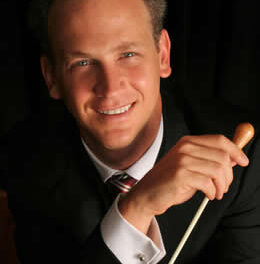Since Bella Davidovich was unable to perform in Greensboro in October, there were changes in the Greensboro Symphony Orchestra’s subscription concert programs and for the October 22 Sitkovetsky and Friends Chamber Music event, too. For the latter, the program scheduled for May was brought forward, and Schubert’s beloved Octet in F, Op. 166, was presented in UNCG’s Recital Hall. The performers were violinist Dmitry Sitkovetsky, six GSO principals – Concertmaster John Fadial, violist Scott Rawls, double-bassist John Spuller, clarinetist Kelly Burke, bassoonist Carol Bernstorf, and Robert Campbell, horn – and UNCG cellist Brooks Whitehouse, substituting for GSO Assistant Principal Cellist Michael Matthews, who was also indisposed.
Sitkovetsky spoke briefly about the contrasting situations of Shostakovich, who music was featured in the full symphony program, and Schubert. Whereas the Russian suffered from Stalin’s tyranny, having to hide the meaning of his works or put them in a drawer, Schubert was thought of as a composer of songs, and most of his larger works were ignored and thus never performed in his lifetime. On another occasion, Sitkovetsky had stressed that the conservatory in Moscow focused heavily on solo repertory, so he did not become immersed in chamber music until he arrived at the Juilliard School. Schubert’s octet was, he said, basically unknown in Moscow, but when he encountered it in the West, he found it irresistible. He regards it as the greatest chamber music work.
As at the series’ first concert, the mood of the performance was that of a group of friends who love to play together making joyful music. The Octet is one of Schubert’s longest instrumental works and one of his sunniest in spirit. It was dedicated to the Count Ferdinand von Troyer, who played the clarinet, and that instrument’s part rivals that for the first violin. With all the musicians seated in a semicircle, it was a delight to watch the musical give-and-take between Sitkovetsky and Burke. The six movements, diverse in tempo and fancy, gave each player a chance to show off his skills. Campbell deserves extra praise for the perfect balance he maintained with his colleagues. It takes musicians with refined taste and skill to keep Schubert’s endless stream of melodies and repetitions effervescent. This performance was so engaging that it was hard to believe it consumed a full hour! This was one of two renditions that I will surely recall fondly – the other was given at Duke by the Vienna Octet, whose members represent an unbroken chain of musicians and their students who hew closely to that city’s performance traditions, for better or worse. Sitkovetsky and Friends’ fresh approach was most welcome. The performance was so enthusiastically received that the musicians encored the allegro portion of the final movement.











